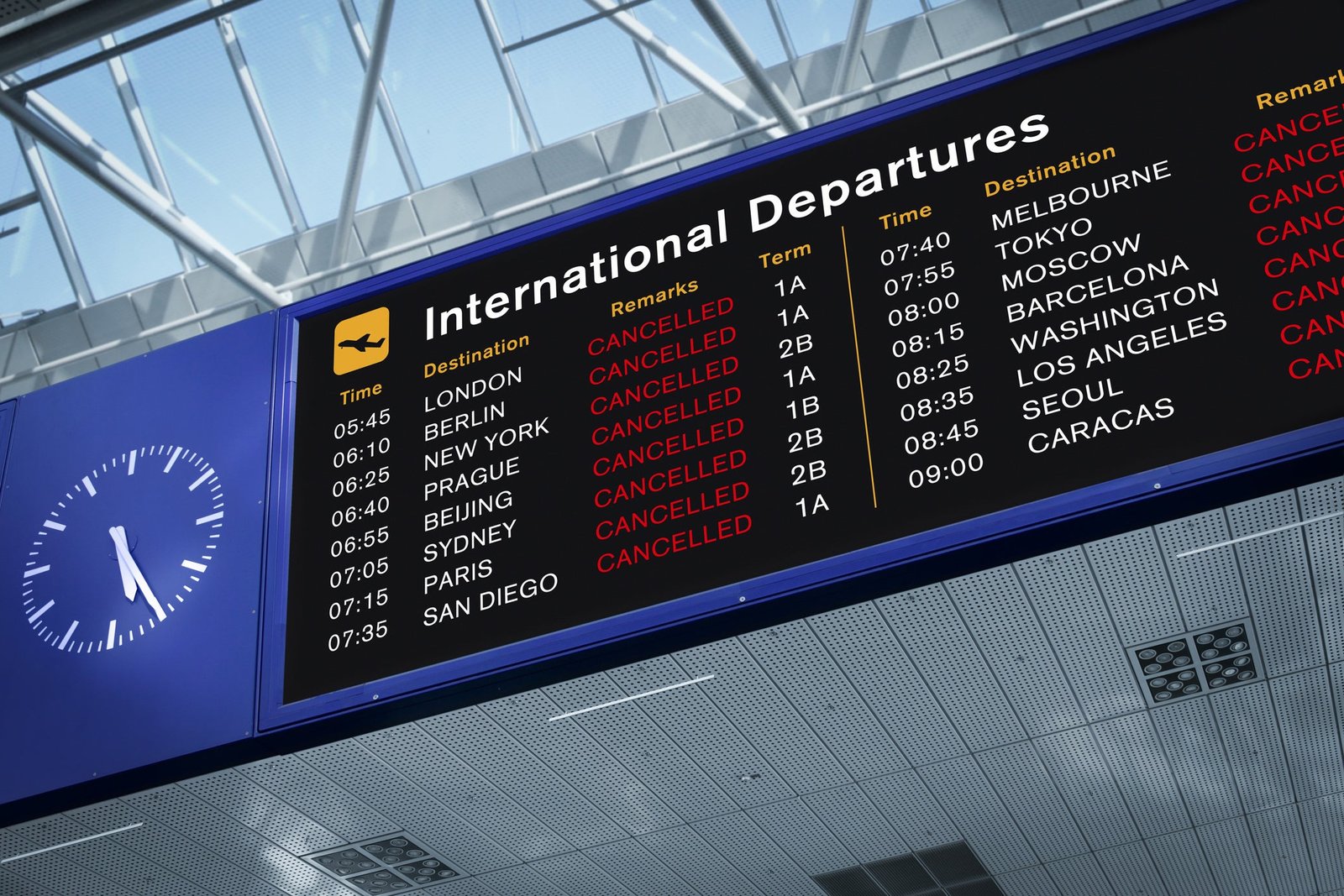Travelers flying to or from Europe on Thursday are experiencing mass cancellations and delays due to ongoing strikes in Germany and Finland. This is the first major disruption to the European travel sector this year, highlighting the disruptive power of a disgruntled workforce.
In Germany, around 25,000 aviation security staff members staged walkouts across airports, including Frankfurt Airport, Hamburg Airport, and Berlin Brandenburg Airport. Lufthansa, the national carrier, advised its passengers not to travel to German airports during the strikes and urged affected passengers to rebook their flights before February 8. At the time of writing, Frankfurt Airport has seen around 25% of its scheduled departures canceled, while Stuttgart and Hamburg have been hit the hardest with 49% and 40% of departing flights canceled, respectively. Berlin Brandenburg is also experiencing significant disruption with 48% of its scheduled departures currently canceled. Munich Airport and Nuremberg Airport are the only two German airports currently operating flights.
The strikes in Germany are a result of workers demanding a wage increase of 2.80 euros per hour to offset inflation, along with increased bonuses and overtime pay. Additional wage negotiations are expected to resume in the coming days.
In Finland, strikes across various sectors are also causing significant disruption. Finnair, the national carrier, expects to cancel approximately 550 flights over the next 48 hours as workers across the country join forces in what is being called a “political strike.” Almost all airports across Finland are experiencing disruption, with six airports closed for the duration of the strikes and capacity restrictions in place at several others. The strikes in Finland are against the Finnish government’s planned labor market reforms, cuts to social welfare, and attempts to limit political strikes.
If your flight has been affected by the strikes, your airline will likely have informed you of the cancellation or high likelihood of cancellation. Airlines usually offer the option to rebook for a later date or provide a refund or future flight credit. EU261 requirements state that if a flight is delayed or canceled, the airline should offer a place on the next available alternative flight, regardless of cost or carrier. Compensation may also be offered, although rules can vary during strike disruptions.
European travel is once again facing strike disruption, and while the effect will likely be short-lived, more strikes may occur in the future. Finland’s strikes are part of a political protest, while the strikes in Germany cover multiple sectors. It is unlikely that agreements appealing to union members across all these sectors will be met quickly.
To stay updated on ongoing strikes in Europe, refer to a regularly updated guide. If you have been affected by the strikes and need more information on your options, check out strategies to use when your flight is canceled or delayed.

